Gendlin’s Focusing technique is super rad. I know this because everybody keeps telling me so.
(Okay, not quite everybody, but a really tediously large percentage of the people in my online social circle.)
But I’ve tried it a bunch of times, in a bunch of variants, with a bunch of qualified mentors trying to help, and it’s just never clicked. I’ve listened to the audio book and gone through all the steps, and it just doesn’t do anything for me.
So here’s my variant—the thing that I do instead, which I claim is using the same hardware and software and providing me with the same kind of improved introspective access. If you’re one of those skeptics who thought it all sounded nuts, or one of those unlucky people who thought it sounded awesome but could never make it work, this post has your name on it.
The “big idea” of Focusing (according to me) is that parts of your subconscious System 1 are storing up massive amounts of accurate, useful information that your conscious System 2 isn’t really able to access. There are things that you’re aware of “on some level,” data that you perceived but didn’t consciously process (see blindsight as both concrete example and metaphor), competing goalsets that you’ve never explicitly articulated, and so on and so forth.
Focusing is a technique for bringing some of that data up into conscious awareness, where you can roll it around and evaluate it and do something about it. Half of the value comes from just discovering that the information exists at all (e.g. noticing feelings that were always there and strong enough to Imperius you but which were somewhat “under the radar” and subtle enough that they’d never actually caught your attention), and the other half comes from having new models to work with and new theories to test. If I manage to recognize that e.g. a significant chunk of my romantic problems stem from self-censorship pressure because of a strong aversion to seeming needy, I suddenly have threads to pull on rather than falling back to just “Yeah, things with Cameron are not great.”
The actionable claim of Focusing (again, according to me) is that this information expresses itself in “felt senses” in the body—think butterflies in the stomach, or your throat closing up, or the heat of embarrassment in your cheeks, or a heavy sense of doom that makes your arms feel leaden and numb, or whatever physiological sensation happens to you when you catch yourself about to tell a lie. The brain doesn’t know how to drop its information directly into your verbal loop, so instead it falls back on influencing your physiology and hoping that you notice (or simply respond).
Gendlin recommends a series of steps that help you build up the skill of noticing and dialoguing with these felt senses until they yield their precious data (often changing or disappearing in the process).
I’m going to focus (tee hee) on the one part of Gendlin’s process that makes the most sense to me, which is finding the felt sense’s True Name. In the official algorithm, this is step three—finding a handle. In my version, it’s basically the whole technique.
Note: it’s worth mentioning that when Gendlin titled his process “focusing,” he meant it in the sense of “gently turning the knob on a microscope to bring things into focus,” and definitely not in the sense of “buckle down and try real hard to effortfully bring your attention to bear.”
All right, diving in. First, take a look at this face.

A particular face making a particular expression is going to be our metaphor for a felt sense. Faces and expressions are rich in contrast and detail, they’re extremely specific and recognizable, and they’re very hard to describe in words—just like my implicit models of the dynamics between me and Cameron and all of our history and all of my unstated assumptions about how romantic relationships work.
(Side note: Cameron isn’t real. Cameron is like Maria in a Counting Crows song.)
A sketch, on the other hand, is compressed. It can be evocative, but it’s sparse and utilitarian, conveying as much of the relevant information as possible with economy of line. In order to get something as rich as a real face out of a sketch, your brain has to do a lot of processing, and regenerate a lot of information from cached models and past experiences.
What’s most important for our metaphor is the concept of trueness. Fit, accuracy, veracity—the quality of an actual correspondence between model and reality. It’s not about how detailed or technically sophisticated the sketch is, it’s about whether it matches what it’s trying to match.
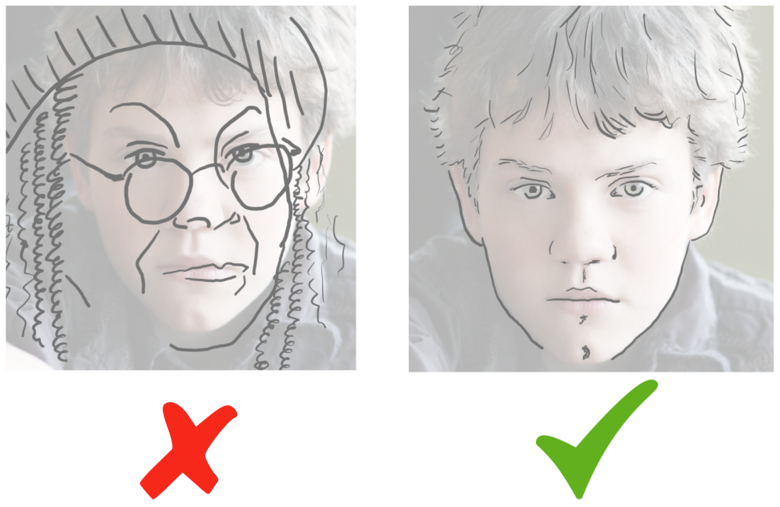
The relationship between [words] and [felt senses] is analogous to the relationship between [sketches] and [faces]. You could riff off of the old saying and claim that “a felt sense is worth a thousand words.”
And the practice of Focusing (or at least my version of it) is one of using careful introspective attention to zero in on the right words. The name or “handle” you come up with won’t be anywhere near the whole story, but it can nevertheless be the short, compressed version of the right story.
(The same principle applies to “partial” sketches—you could imagine just a few lines around the nose and one side of the jaw that don’t convey the whole picture, but do very accurately match a part of it. In our metaphor, that would be like gaining clarity on one aspect of the thing that’s bothering you, even if you still can’t see the whole picture.)
(Also, while the rest of this post focuses on words specifically, it’s worth noting that you could engage in a similar process to translate your felt senses into any other medium, as well. e.g. a vivid mental image, or a scribbled picture, or a free-verse poem, etc. If words aren’t working for you, try a different modality.)
Okay, let’s try it. We’ll bounce back and forth between words and pictures to try to give you a sense of what mental motion I’m making.
Okay, so there’s clearly SOMETHING bothering me. And it’s got something to do with Cameron.
This is like knowing “the picture is a face” as opposed to maybe “the picture is a fighter jet.” It’s a very coarse starting point, trying to get us in the right ballpark.
At this point, it helps to get a clear sense of where the problem lives in my body, i.e. does this feeling express itself in any identifiable physical sense? What happens to my subjective physiological experience, when I turn my attention to “the thing that’s bothering me about my relationship with Cameron”? Does the reaction live in my belly, in my limbs, in my head? Do I experience it as an ache, a tingle, a heat, a chill?
To be clear, you’re not actually trying to pin the sensation down and put words on it, at this point—you’re just making sure that you know which feeling you’re dealing with. If you have multiple stressors in your life, they will likely show up in different ways, and it helps to be dialoguing with a single felt sense at a time.
It’s also worth noting that a lot of people struggle with Focusing specifically because they have a hard time zeroing in on a physiological marker, and according to me, that doesn’t mean you can’d do Focusing. I think you can do something analogous with e.g. your sense-of-what’s-true—you can make an explicit claim about the problem, and then check whether that claim seems accurate, without ever referencing sinking feelings in your stomach (or whatever).
So, first iteration:
Have we been fighting a lot?
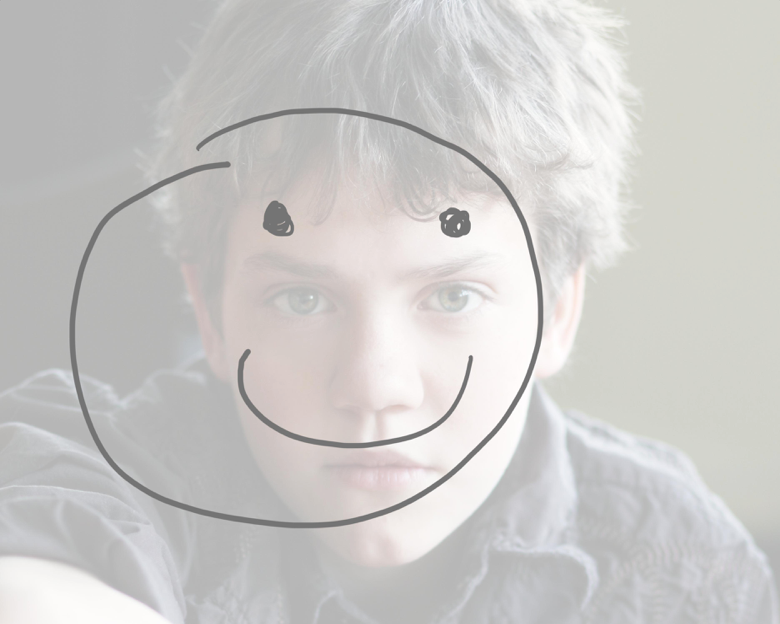
No, that’s not it at all.
(This is the equivalent of saying “no, not a smiley face, a serious face.”)
I got that reaction by holding up the hypothesis/potential handle against the feeling and comparing them.
It’s more like — like — ugh, like I never know what to say?
No, it’s like I have to say the right things, or else.

(Here I’ve gotten a partial match—I’m nowhere near the real story, but something about that handle I just tried out resonated. It has the right flavor, and I can sort of poke around near the thing I just said for other words that might be a closer fit. If the initial flailing about was the “stochastic” part, now I’m in “gradient descent.” Something has responded, something has changed—the nonverbal part of my brain that’s trying to send up a message is telling me “yes, you’re getting warmer!”)
It’s like — if I say the wrong thing, then everything falls apart and it’s all ruined.
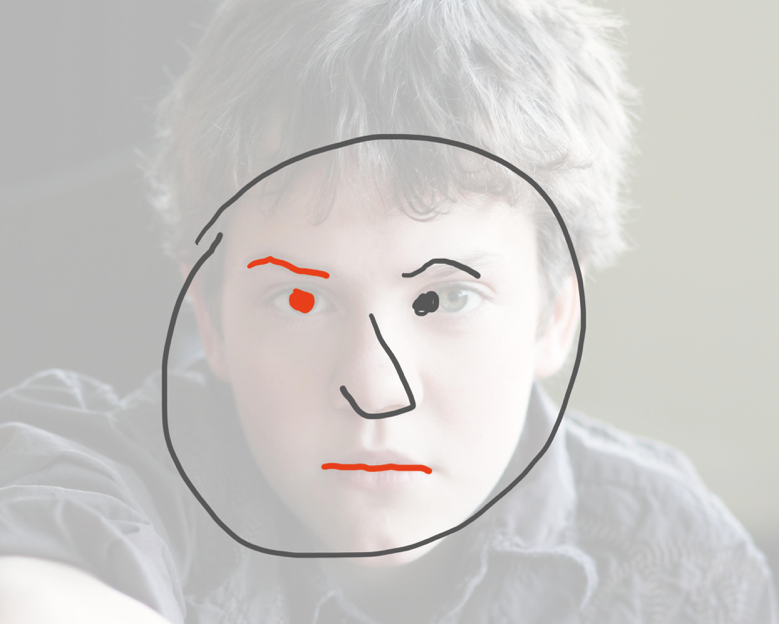
And it’s like I’m the only one? Like, Cameron doesn’t have to pay attention, just me. Cameron gets to —
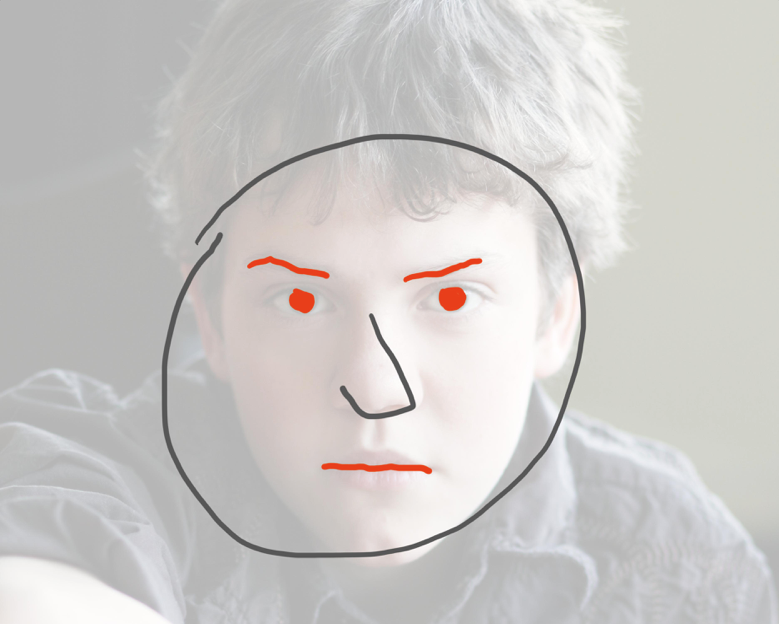
— to —

— to relax. That’s it. Yeah. It feels like I’m the only one who doesn’t get to relax.
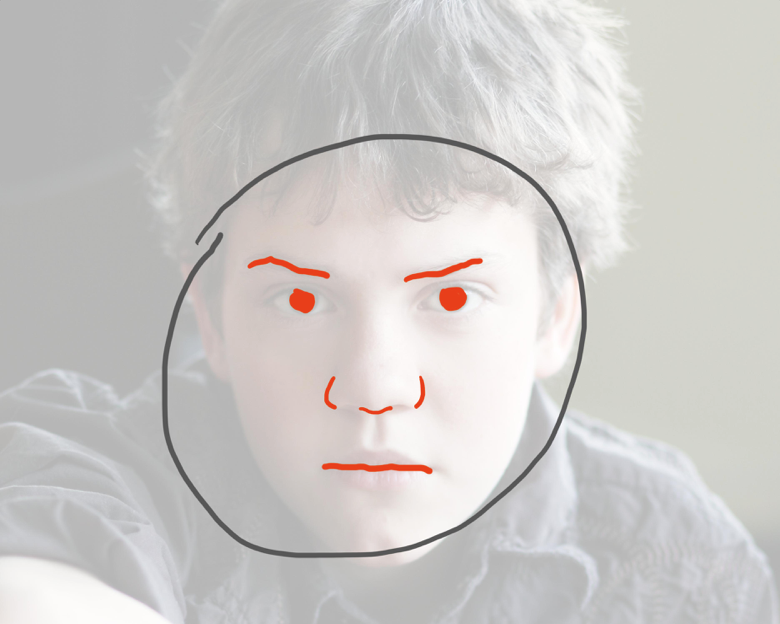
(There, I was doing a super-fast scan over a whole bunch of possible words and phrases and explanations, all the while paying very close attention to my truth-detection module. I knew where the answer would be, and I knew its general shape, but I had to keep looking until I found something juuuuust right. It’s like when you mentally stutter past five or six different comebacks to throw at your classmate until you find the one that’s cutting, true, and okay-to-say-even-though-your-teacher-is-listening.)
You get the idea. As the process continues, the verbal sketch grows more and more accurate, and evokes more and more of the underlying what’s-really-going-on. I can feel a sort of click, or a release of pressure, or a deep rightness, once I say the thing that really completes the picture.
(In Gendlin’s Focusing, he makes the point that the felt sense will often change—or vanish—once you’ve given it the right handle. It’s sort of as if the part of you that was trying to send up a red flag and expressing itself in a physiological sensation no longer has to keep sending that signal once your conscious brain receives the message. There’s often a relaxing, opening-up sort of feeling once the unrecognized problem becomes explicitly recognized.)
The problem is, I feel like I’m the one who has to be the grownup, because if Cameron gets mad and I don’t fix it, then that’s it—things are just bad forever. But when I’m the one who gets mad, Cameron doesn’t do jack squat. Cameron protects Cameron, and I protect us, and that’s something I never get to put down. It feels like I’m the only one who’s putting effort into maintenance, and that makes me feel like Cameron doesn’t really want the relationship at all, or at least doesn’t value it and wouldn’t miss it if it ended, and that’s lonely and exhausting and it makes me feel like maybe I’m not worth valuing.
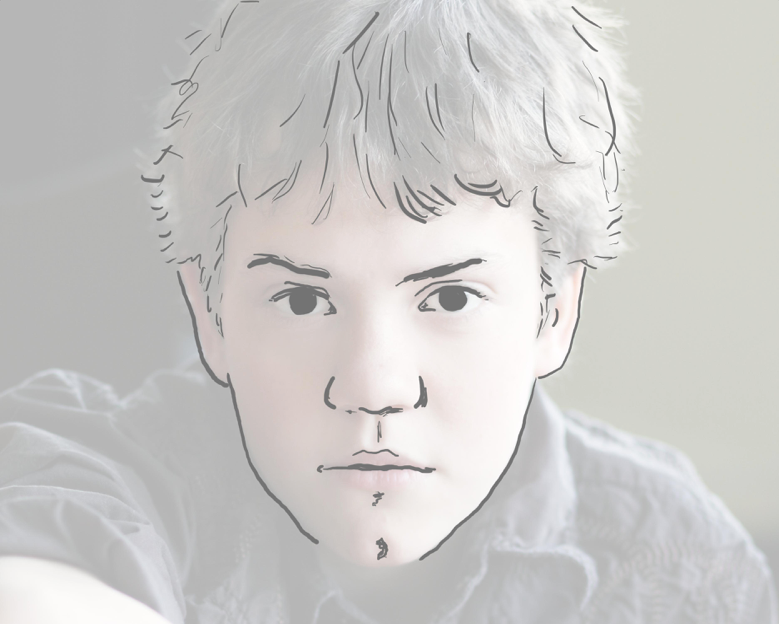
I’ve glossed over a few things in describing this process, to save time. For instance:
As I mentioned briefly above, the handle doesn’t always come in words—sometimes it can be a vivid image, or a metaphor, or a poem, rather than a straightforward description.
Often, there’ll be a whole other felt sense (or three) that arises and needs to be either a) dealt with or b) set aside
Frequently, a given attempt to iterate on finding a handle—a given single step in the process above—will move your overall understanding away from accuracy rather than toward it. That doesn’t mean you’re doing it wrong. Patience is key.
And of course, just because you’ve accurately named your brain’s sense of what’s going on doesn’t mean that you’ve found the actual truth—it’s almost trivially easy to construct another side to this story in which Cameron’s trying to relate to me as an equal, but I insist on being patronizing and untrusting and laying blame for things Cameron never asked me to do, why does it always have to be this huge deal, why can’t we just have fights every now and then like normal people and just get over it without acting like it means something? Now it’s not only that you’ve pissed me off, it’s also that I’m not allowed to be angry—that I have to calm down and make up or you’ll start acting like our whole relationship is doomed. That’s some serious hostage-taking right there.
Or maybe not. Maybe that isn’t it, and the real problem is on a completely different axis. But either way, I’ve gotten clarity on what was going on in my head, under the hood—on what sorts of narratives and frames resonate with the part of my subconscious that was generating the feelings of frustration or unease in the first place. That’s a huge step forward in turning the problem into something tractable, with gears and levers and switches. Instead of being a Mysterious Mystery, it’s now mundane (which is not to say that it’ll be easy to fix, just that I’m no longer fumbling around in the dark).
To me, that’s super valuable, even if a lot of the people I know who do Focusing insist I’m doing it wrong.
Datapoint: I also feel like Conor’s description captures the essential core of Focusing: the thing he described clicks rather perfectly with the thing I do when I do something Focusing-ish, whereas I’ve forgotten what the other steps in Gendlin’s process were. (Though IIRC Gendlin himself said that the whole thing about breaking it down into steps is just a “set of training wheels” for getting people learn to it, and that the steps meld into each other for people with more experience, so I also always figured that forgetting the exact sequence of steps is what’s supposed to happen after you “get it”.)
Something that I’d like to emphasize is that, one might get the impression from this post that Focusing involves consciously analyzing various alternatives. And it’s very important to emphasize that it’s very much not about doing an intellectual analysis. In fact, a loose heuristic I might use is that if you don’t arrive at an end result which seems at least a little surprising, and which you couldn’t have figured out using your intellectual reasoning, then you might not have done the technique right.
There’s a distinct mental sense to what doing an intellectual, logic analysis feels like, and this is very different. As the post says, the sense you should get is this:
There’s a vague, hard-to-verbalize feeling in your mind. You keep the feeling active in your mind, and try different handles against the “shape” of the thing, moving around in the vicinity of the correct one, until you hit upon the handle that fits the mental shape. And then you get a—possibly subtle—shift in the shape of the thing, that tells you’ve found the right handle and that the two have fit together.
Though like the post says, you may get feelings like “no, that’s not quite it, it has more to do with something like X”; this is fine, and a part of the process. When I say it’s not logical analysis, I mean that you shouldn’t start constructing stories of why you’re feeling this way and why that might be. Rather you just listen to the subtle sensations of what this might be related to, and what it feels like, and what kinds of associations come to mind.
Trying to do Gendlin’s Focusing, as described in his book, did nothing for me.
What actually motivated me to work on introspection was hitting a couple of overlapping updates at the same time:
reading a book called Raising Your Spirited Child, which encourages parents to help children name their emotions as a way of moderating toddler tantrums
getting the advice that naming my own emotions would moderate my own emotional outbursts
learning to “tune in” to my fetus kicking in my belly, and feeling it go from “I can’t feel anything” to “that’s clearly a kick.”
What these all have in common is the attempt to detect subtle feelings, physical or emotional, instead of just rounding everything to “nothing” if it’s not “severe pain.”
The problem with Gendlin’s book, and with this post, is that it tells you how to do Focusing but not when to do it. When a feeling is salient enough for you to notice it as “something”, you’re probably already doing some Focusing on it, and adding the official process doesn’t obviously help. The magic seems to be in identifying structure in the feelings that feel like “nothing” to you.
“Does your stomach hurt right now?” “I don’t know!” “How can you not know!” “I don’t know how I would possibly find out whether my stomach hurts or not!” <--- that’s an example of something feeling like “nothing”, where focusing/meditation could reveal “something” underneath.
I agree, now that you’ve pointed it out, that being told when to do Focusing would also be very valuable; but my own experience, at least, doesn’t agree with the rest of your paragraph.
My experience has been closer to, if I have painful feelings, then I am very aware of the fact that I do have painful feelings; the default inclination of my mind has been to try to push those nasty things away, but they’ve insisted on coming back, which has led to a very blatant and obvious mental conflict that would have been impossible to miss.
What learning Focusing, and related techniques, has done is not that I notice the feeling as salient; rather the magic is in changing the response to the noticing, from “push away the feeling” to “look closer at the feeling to see more of its underlying structure”.
My guess is that this might point to a difference in how the-minds-of-people-like-me and the-minds-of-people-like-you function: maybe you’ve been better at actually successfully pushing the negative feeling away whenever it arises, to the point that the feelings have stopped consciously registering anymore, and you need to start with learning how to notice their existence. Whereas for me, the negative feelings have been so strong that I’ve been unable to push them away, so never learned the habit of automatically successfully pushing them away, and I can skip the “learn to notice them” phase and apply Focusing more directly.
That’s a true and important insight. But to be fair, this comment doesn’t tell me when to do Focusing either? Like, it points out “a feeling of nothing could be a feeling of nothing, or it could be a place where you have insufficient sensitivity and resolution.”
And in general, thinking strategically and building a habit of trying to develop sensitivity and resolution whenever, such that you’ll have it when you need it, sounds good.
But I’d love to know from people like you or Brienne when it was (most useful)*(most surprising) to have tried a Focusing-esque move and found value where you didn’t think there was anything prior to embarking on the attempt. It’d be really cool to develop an explicit partial model of “expectedly unexpected opportunities for Focusing.”
Man, I have been waiting so long/hard for someone(s) to try different approaches to teaching focusing (although I haven’t tried learning at CFAR, not sure what their lesson there is like)
The Gendlin’s Focusing audiobook worked for me (my girlfriend and I listened to it together and it gave us tools useful both for the relationship and life in general). But I was keenly aware that the thing-I-got-out-of-the-audiobook wasn’t that tightly coupled with the particular way the audiobook works, and that there were probably better/simpler/different ways to explain it.
I think this is a pretty good description—at the very least, it conveys why you’d want to learn this, even if it’s not quite enough to learn it on it’s own. (I’m curious if anyone else who’s wanted to learn focusing is able to make progress via this post, I hope it works out at least for some people)
So, a lot of props for this. Thanks. :)
I haven’t actually taken CFAR’s Focusing lesson, but from what my friends tell me, it’s not at all like the above.
I have learned about Focusing from CFAR instructors and what you took away from it is what I took away as the core, useful thing. Even though this isn’t really how it was taught. The version I heard had a lot more focus on the physical sensations (which did bupkis for me) while the thing you described “Is it X?” did more.
Can you say more about what’s different?
Not really, since I haven’t taken it, but my raw impressions from what I’ve heard is that the CFAR class follows Gendlin’s process more explicitly, covering all six steps in a way that Gendlin would be likely to recognize and endorse. So stuff like being more emphatic at the beginning about clearing a mental space and getting into a comfortable physical position and sort of dropping into your body and stuff, which I never found super useful personally but which I’ve seen be very useful for others.
The way I learned it at CFAR was a four step process of notice the felt sense, describe the felt sense, check if that’s correct, and then go back to describing if it doesn’t. Almost exactly what you stated above.
Promoted to Featured, for being a really good piece of communication—the images and story behind them really helped me understand/feel the felt sense being pointed at, and I expect the same for others too. Also I’m really happy to see good ideas, that are used frequently in the community yet aren’t common knowledge, being written up.
(This is a post from 3 weeks ago, and normally Featured posts are from the last ~5 days. However, when Ray brought this to my attention just now, I realised I should’ve put it in Featured when it was posted. Then I decided that a good norm for noticing that something should be in Featured but is 3 weeks old… is to just put it in Featured.)
it wasn’t until the end of the post that i finally drew the connection between “focusing” as a label for the process you’re following and the “focusing” used in the title. given how broad is the meaning of the word “focus”, i think we ought to embrace slightly more explicit labels when discussing this technique outside of its niche, e.g. “introspective focusing” (as opposed to focusing on an external task, as is perhaps the more common use of the phrase).
I will also note for people exploring different ways to learn focusing:
I used the audiobook, and one of the valuable things about it was that you can set the book down, lie on your back, listen to your body, and the narrator will talk you through exercises. This way you can be totally focused (tee hee again I guess) on what your body is doing instead of trying to maintain posture to read and remember what comes next.
(I’ve heard other people didn’t find that helpful, so your mileage may vary)
Yeah. I do want to state that my sense was that the audiobook is very good. It’s just … uh … it’s like, I can recognize the culinary quality of a five-star lasagna, but if I don’t like ricotta cheese it’s wasted on me?
For sure, if you want to try “real” Focusing, I endorse the recommendation that you try out the audiobook. It’s great. It just wasn’t Conor-shaped.
Heh, I actually thought the Focusing book was ‘okay’ but good enough to do it’s job
Firstly, thanks Ben for promoting this, because I hadn’t seen it the first time through.
I don’t know if the thing I am doing is too unrelated, but often when I notice myself feeling something generally negative, I will trace it back to its root cause. These are usually specific things that happened or that I’m worried about, and not big overarching things.
But figuring out what it is or naming it doesn’t make the feeling go away. I’ll KNOW why I’m feeling anxious/ frustrated/ whatever, but there doesn’t generally seem to be anything useful to do with that information, and I have to continue feeling the negative emotion until it fades away on its own with the passage of time.
That sounds like the tracing back that you are doing, might be an intellectual kind of analysis of why you feel that way? In general, an intellectual analysis doesn’t make feelings go away, whereas something like Focusing is much better at it.
I don’t think you are doing it wrong. It’s just that you do 1⁄6 of what Focusing has to offer (or maybe 2⁄6).
What do you think is the other 5⁄6 (or 2⁄3)?
+1 for asking the question. I know you were probably asking Christian and not me, and Christian’s answer is likely to be the more valuable one, but here’s my two cents:
My sense is that there is no other 5⁄6 … that what people claim to get is greater introspective access and greater sensations of relief or clarity or certainty, and that what I do provides me the same benefits.
If I were really reaching, I guess I’d imagine that genuine Focusing provides more of the benefits that meditation does? Increasing one’s ability to induce states, increasing one’s ability to deeply relax and clear one’s mind, that sort of thing?
I could also see the real version perhaps doing a better job at capturing nuance and subtlety around the edges. Like, following the predictive processing model, one might imagine that Focusing is about lowering the volume on the top-down predictive signals, so that more of the bottom-up perceptive signals can register and be heard. I suspect that the process I’m doing successfully avoids drowning out important bottom-up signals, but I wouldn’t be immediately dismissive of someone who claimed I was crystallizing things too soon or forcing things to fit into a premade box when they might actually be a slightly different shape.
Most of the times I’ve encountered people fretting about that sort of thing, I think they ended up overstating their case (it seems like they’re trading one failure mode for another, and are susceptible to overfitting and being oversensitive and convincing themselves that fleeting and unimportant signals are real and super relevant). But I maintain uncertainty about that, and certainly even if they’re too far along the spectrum I might nevertheless be at the wrong point myself.
I’m sorry for my late reply, I didn’t check whether there were unanswered messages.
When I said it’s ⅙ I meant that it doesn’t distinguish the different steps of focusing and their value.
Let’s say I’m Bob and I’m angry with Alice because she was supposed to take out the trash.
“Alice should have taken out the trash” might be a description of a feeling you get when following the process Conor proposed. It’s something that feels true.
In Gendlin’s model you would first make clear your space to focus on the issue. In some contexts that’s more important than in others.
The second step in the felt sense. There are processes happens when the felt sense enters awareness and there’s connection with the felt sense.
The third step would be finding the handle. “Anger” would here likely be a good handle. The handle itself isn’t the story of what caused the emotion. Step 4 is then validating whether you got the right handle.
Before learning Focusing I had the ability to feel my felt sense clearly but I didn’t have a relationship to my feelings as being named with words like “anger”, “sadness” or “curiosity”. That’s a valuable thing I got from Focusing and it generalizes for me really well to situations outside of formal Focusing.
The last step of Focusing is Questions&Answers. In this case a question might be “What should I do about it?”
This is where sometimes interesting answers come up from system I. Here it might be “I have to talk with Alice about the responsibility in the house”
Getting such an answer from system I can go along with the emotion releasing. Just getting to “Alice should have taken out the trash” might not be enough to release the feeling.
[Note from Sunshine Regiment] A++ To Conor and cauliflower for asking clarifying questions in response to a low information comment that could easily be interpreted as antagonistic.
That’s … not a very helpful comment? Either repeating something wrong, or rubbing salt in the wound by repeating something right and unpleasant that I’m clearly already aware of.
Edit: the above meant to be “sad” not “attacking you.” Apologies for the dickishness inherent in the original wording; I’ll hold off on replying until I have enough time to not be a knee jerk next time.
The thing I’m actually (weakly) claiming is that I’m not missing 2⁄3 of what Focusing has to offer—that people who got really excited about the gains inherent in Gendlin’s system are now wandering around unreflectively claiming that people who do something else are doing it wrong or missing out, and failing to account for the fact that people’s minds have different shapes and work with different inputs and that there might be more than one algorithm that achieves what Gendlin’s algorithm achieves.
To put it another way: how could one falsify the claim that I’m only getting 1⁄6 or 1⁄3 of what Focusing has to offer? If the claim isn’t falsifiable, then I’m inclined to distance myself from it. There are some people (I’m not saying you’re one of them, but I’ve encountered them) who basically believe it so strongly that it caches out to “we’re writing you off until you get around to drinking the Kool-Aid and then admitting you were wrong all along.”
I can definitely imagine a world in which I’m just blind and blindspotted, and that world is one of my relatively-high-probability hypotheses, but in fact I feel like I have access to every one of the gains that anyone has ever described getting through Focusing—I just don’t get them through Focusing myself.
I would also like to hear ChristianKl elaborate. My feeling about the Focusing book is that it’s like a set of instructions for solving a puzzle that is hidden inside a box. Many of the steps are things like “1. Open the box. 2. Locate the components of the puzzle with your hands. 3. Arrange the components together for convenience. 4. Pass your hands over the pieces to get a physical sense of their shapes.” The first three steps you really only need to be told once, after which you get it, and on subsequent puzzle-solving attempts you can generally do steps 1-3 implicitly and only really need to exert effort for step 4 and beyond.
Perhaps I’m wrong. Perhaps I’m missing some nuance in how there are many subtly different ways of opening the puzzle box that yield different results.
In the book Gendlin says that the steps are really just to help people learn, they aren’t at all necessary to the process, so I think Gendlin would himself agree with that.
>That’s … not a very helpful comment? Either repeating something wrong, or rubbing salt in the wound by repeating something right and unpleasant that I’m clearly already aware of.
One of the big things that *I* got out of studying and practicing things like “focusing” is that “pain is just information” and the litany of Gendlin can actually be true in a very “felt sense” sort of way. The thing you describe as “rubbing salt in the wound by repeating something right and unpleasant that I’m clearly already aware of” can actually be a very helpful thing *if* it triggers the introspection required to deal with the provoked discomfort (though obviously unhelpful and and unwanted if it doesn’t). Whenever I have something that stings like that, I try to focus on what exactly it’s saying until there’s just nothing left for it to say. Of course, in order to get to where you can do that you often have to focus on the meta pain that is telling you not to look at and all that, but when you get down to it, it *really* helps. It even works with purely “physical” pain like when you break your foot.
Things that are still painful are places where I haven’t fully integrated the corresponding information yet, and are therefore places where I’m at risk of making unnecessary mistakes. I *want* the painful disconnect brought up so that I can learn from it. I also find it a lot easier to get explanations out of people when they can tell that I’ve taken in what they have to say, I take it seriously, and it’s not a painful thing I’d rather flinch from.
This fits with my model of e.g. guilt, shame, FOMO, as being persistent signals à la “some part of me thinks I really haven’t internalized this lesson yet” that won’t go away until it is learned more thoroughly.